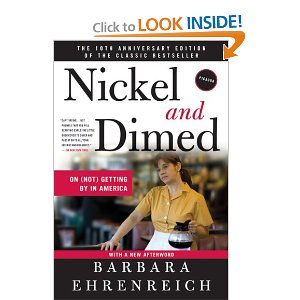A year and a half ago, my husband Brad was laid off from his job in Minnesota. We had only lived in Minnesota for a year, so we had no other job prospects in the area or history of family, friends, and church to support us. So we reluctantly packed up our apartment and storage shed, and moved 1100 miles back to Maryland.
When we arrived back in Maryland, we didn’t know where to begin rebuilding our life. We had just received our tax refund, and thankfully hadn’t spent any of it yet. We had a giant yard sale in Minnesota that covered the cost of moving back to Maryland. We moved in with my parents, not realizing that a few months would become a full year in their basement. It took a month to become certified as substitute teachers, and five months before Brad was offered his first long-term substitute position. I took care of the kids, and looked for any way possible to save or make money. It was the hardest year of our marriage, and we still don’t know how we would have survived without the emotional and financial support of family and friends who cared for us through those dark months.
I tell you all of this because I really enjoyed “Nickel and Dimed” by Barbara Ehrenreich. Ehrenreich decided to join the working poor as an investigative reporter, revealing the lives of low-wage America. I was pleased to see that she noted the importance of family and friendships in sustaining the working poor, sharing burdens, housing, childcare, and groceries. I was also pleased that she noted the unique gererosity of the poor, as Brad and I were so often the recipients of the generosity of those who had as little as we did. I was also glad to see that she did not generalize the working poor as lazy, incapable, or unwilling to find work. The economy and housing market plummeted, while unemployment, food costs, and fuel costs rose. We were daily encouraged to realize that our circumstances were not unique, and did not have to define us.
Thankfully, Brad was hired to begin his new full-time job this past September, and we have continued to pay off our debts one by one. But we will always remember the year in my parents basement, and the lessons we learned. Our situation could have been far, far worse. In fact, I am sure there are many whose struggles would make ours look like a walk in the park. Nickel and Dimed illuminates the lives of the invisible working poor, their struggles and heartaches. If, like us, you grew up in the middle or upper class, it will provide a glimpse into a world you may have never imagined. I hope you will not only learn about the poor and their struggles, but determine to do something to help them.
“From everyone who has been given much, much will be demanded; and from the one who has been entrusted with much, much more will be asked.” Luke 12:48
 March 31st, 2012
March 31st, 2012  Jessica
Jessica 
 Posted in
Posted in 

